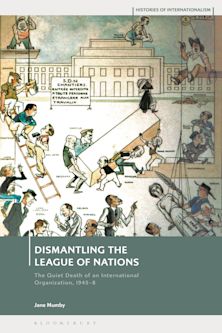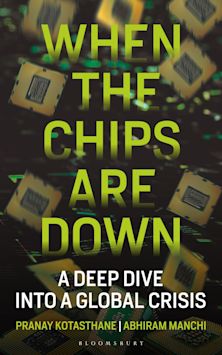- Home
- ACADEMIC
- Politics & International Relations
- International Relations - Other
- Civilizational Dialogue and Political Thought
Civilizational Dialogue and Political Thought
Tehran Papers
Fred Dallmayr (Anthology Editor) , Abbas Manoochehri (Anthology Editor) , Seyed Ali Reza Hossein Beheshti (Contributor) , Joseph A. Camilleri (Contributor) , Ahmad Golmohammadi (Contributor) , Hadi Khaniki (Contributor) , Norma Claire Moruzzi (Contributor) , Homeira Moshirzadeh (Contributor) , Fabio Petito (Contributor) , Fatemeh Sadeghi (Contributor) , Seyed Kazem Sajjadpour (Contributor) , Housein Salimi (Contributor) , Karl K. Schonberg (Contributor) , Mostafa Younesie (Contributor) , Mohammed Khatami (Foreword)
Civilizational Dialogue and Political Thought
Tehran Papers
Fred Dallmayr (Anthology Editor) , Abbas Manoochehri (Anthology Editor) , Seyed Ali Reza Hossein Beheshti (Contributor) , Joseph A. Camilleri (Contributor) , Ahmad Golmohammadi (Contributor) , Hadi Khaniki (Contributor) , Norma Claire Moruzzi (Contributor) , Homeira Moshirzadeh (Contributor) , Fabio Petito (Contributor) , Fatemeh Sadeghi (Contributor) , Seyed Kazem Sajjadpour (Contributor) , Housein Salimi (Contributor) , Karl K. Schonberg (Contributor) , Mostafa Younesie (Contributor) , Mohammed Khatami (Foreword)
This product is usually dispatched within 3 days
- Delivery and returns info
-
Free CA delivery on orders $40 or over
You must sign in to add this item to your wishlist. Please sign in or create an account
Description
Civilizational Dialogue and Political Thought: Tehran Papers gathers together Islamic and Western scholars to answer the call of Mohammed Khatami, former president of Iran, and the United Nations General Assembly for a "Dialogue of Civilizations," a global dialogue for peace. Based in international relations, comparative politics, political theory, and philosophy, the essays in this collection stand in direct challenge to Samuel Huntington's "clash of civilizations" thesis. They testify to the urgency and the viability of the agenda of civilizational dialogue as a guidepost and ethical paradigm for the global community.
Table of Contents
Chapter 2 Preface
Chapter 3 Introduction
Part 4 Part I. Civilizational Dialogue and Political Theory
Chapter 5 Chapter 1. Political Theory and Civilizational Dialogue
Chapter 6 Chapter 2. Dialogue of Civilizations and Political Theory
Chapter 7 Chapter 3. Dialogue of Civilizations and Political Thought
Chapter 8 Chapter 4. Dialogue among Civilizations, Justice and Political Thought
Chapter 9 Chapter 5. Peace Dialogue of Civilizations: The Path of Differential Hermeneutics
Chapter 10 Chapter 6. Dialogue of Civilizations and Feminist Perspectives: Aspects of Interactions
Chapter 11 Chapter 7. Dialogue in the Virtual World: The Impact of Communications and Information Technologies on the Dialogue among Civilizations
Part 12 Part II. International Relations Theory and Civilizational Dialogue
Chapter 13 Chapter 8. Dialogue of Civilizations and International Relations
Chapter 14 Chapter 9. The Evolution in the Conflictual Foundation of the Science of International Relations
Chapter 15 Chapter 10. Dialogue of Civilizations: Objective Grounds and Theoretical Guidelines
Chapter 16 Chapter 11. Critical International Theory and Dialogue of Civilizations
Chapter 17 Chapter 12. Between Imperialism and Relativism: The Role of Culture in Defining Universal Human Rights
Chapter 18 Chapter 13. Citizenship in a Globalizing World: The Role of Civilizational Dialogue
Chapter 19 Chapter 14. The Dialogue of Civilizations as International Political Theory: Khatami and Havel
Product details
| Published | Nov 13 2007 |
|---|---|
| Format | Paperback |
| Edition | 1st |
| Extent | 212 |
| ISBN | 9780739122372 |
| Imprint | Lexington Books |
| Dimensions | 233 x 154 mm |
| Series | Global Encounters: Studies in Comparative Political Theory |
| Publisher | Bloomsbury Publishing |
About the contributors
Reviews
-
'Dialogue of Civilizations' means a true understanding of the world's cultural map and taking a critical look at the 'self' and the 'other.' It presupposes knowledge of the past heritage while seeking and encouraging new experiences. . . . As a new chapter in human history, 'Dialogue of Civilizations' can upgrade human relations from the stage of negative tolerance to positive cooperation. According to this notion, 'others' should not just be tolerated, but be accepted as partners. 'Dialogue of Civilizations' starts with toleration and leads to respect for the other's freedom, while maintaining self-trust and trust in the world.
from the foreword by Mohammed Khatami, Former President of Iran
-
This collection of essays exemplifies what it endeavors to describe and advocate: the possibility and intellectual benefits of dialogue among civilizations.
Ahmad Sadri, Lake Forest College
-
A highly significant contribution to the effort to form new foundations for international relations, this book brings to western readers a rare occasion to become familiar with Iranian thinkers and their rich visions regarding contemporary international conflicts. Responding to the incendiary notion of 'Clash of Civilizations' and its antidote 'Dialogue among Civilizations,' proposed by President Khatami, these Iranian thinkers establish a dialogue of their own with their western counterparts to forge sophisticated theoretical approaches for building consensual global bonds among nations and civilizations.
Farzin Vahdat, author of God and Juggernaut: Iran's Intellectual Encounter with Modernity
-
In an insane world of global panic where war, terrorism, violence, nuclear proliferation, and security have dominated our daily discourse, to discuss dialogue is both refreshing and a good reminder. It is refreshing that the discussion has taken place in Tehran, the place the popular media depicts as the centre of violence and terrorism. This discussion is also a reminder that while humans are capable of clash and violence, we are also a species of reason and constructive interaction. This collection of a dozen essays skillfully captures many sophisticated dimensions of this trait in human civilization.
Farhang Rajaee, Carleton University



































